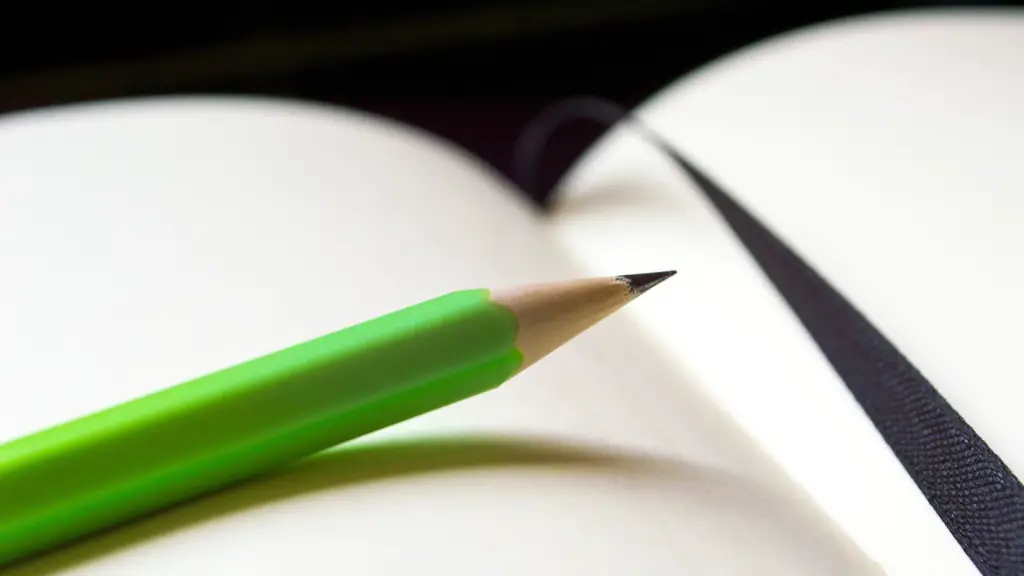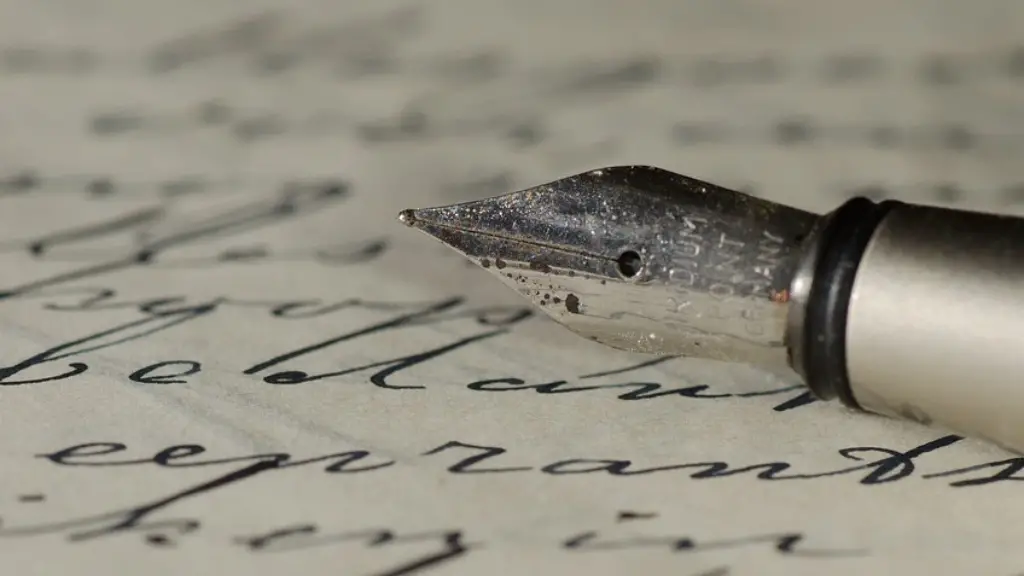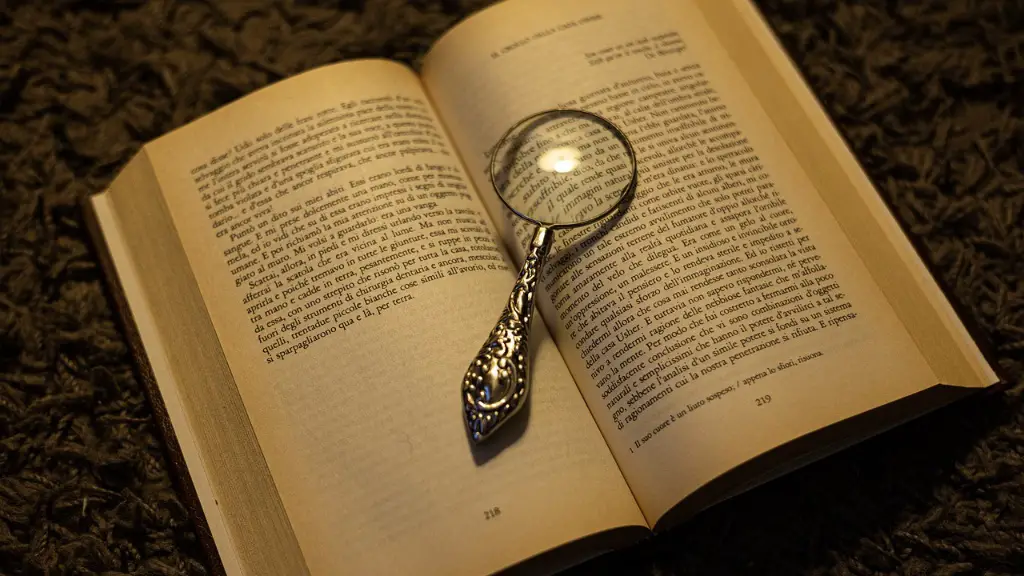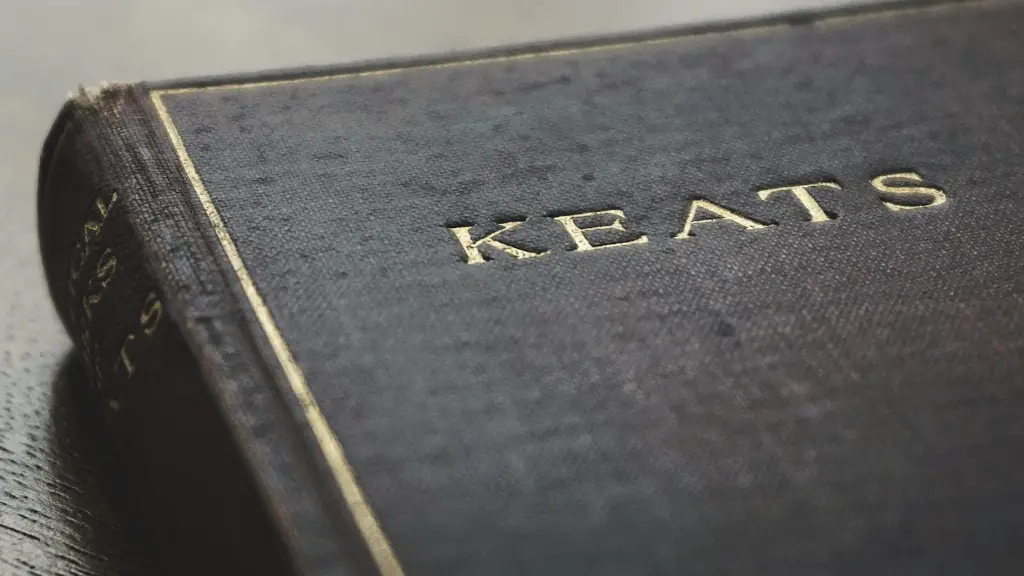Prose poetry is a literary form which combines both poetic and prose elements in a unique way. It is not structured like traditional poetry, in which the lines and stanzas are arranged in specific patterns and rhyme schemes. Prose poetry is typically composed of longer, prose-like paragraphs and relies heavily on imagery and figurative language. Despite its lack of traditional poetic form, its vivid language and evocative concepts make it an incredibly powerful form of literature.
While prose poetry was initially seen as a “double-registered form” by critics, meaning it was neither poetry nor prose, its emergence in the twentieth century has caused it to gain increasing recognition and acceptance as a legitimate form of literary expression. Prose poetry is found in all countries of the world and has evolved into an art form which incorporates both the beauty of poetry and the frankness of prose. It has been especially embraced by modern poets who recognize the power that lies in this hybrid form.
Prose poetry can be used to convey emotions and complex meanings subtly and indirectly to the reader. Its words are expanded and explained in ways that are not possible with traditional poetry. It is ideal for dealing with topics that require a bit more explanation or expansion, such as ideas and philosophical concepts. Prose poetry can be thought of as a bridge between poetry and prose, as it combines the beauty of poetic language with the narrative power of prose.
Due to its unique combination of elements, prose poetry is known for its variety of tones and styles. Writers often use it to explore complex topics with nuance and complexity, conveying multiple layers of meaning in a single work. This makes it a particularly effective form of literature for expressing complex thoughts and feelings, and for conveying powerful messages.
Comparing prose poetry to other forms of literature
While prose poetry can be seen as a bridge between poetry and prose, it should not be seen as a blend of the two. Prose poetry differs from other forms of literature in significant ways, including structure, style, tone, and content. Generally, it has more in common with traditional poetry than with traditional prose. It often lacks traditional narrative structure and has a free-flowing style, wherein individual words and phrases instead of sentences are used to create the desired effect. Additionally, prose poetry usually focuses on a single key idea, emotion, or concept, rather than telling a story or presenting a linear argument.
Unlike traditional poetry, prose poetry lacks formal verse structure. Instead of traditional poetic devices such as rhyme and meter, prose poetry relies heavily on imagery, rhythm, and figurative language to evoke emotions and create vivid scenes. Writers often weave together several ideas, meanings, and images to give their prose poetry a unique texture which is both powerful and delicate.
The advantages of prose poetry
One of the major advantages of prose poetry is its flexibility. It can be used to express a wide range of emotions and thoughts. Additionally, prose poetry provides more room for experimentation than traditional forms of poetry. Writers can incorporate both poetic and narrative elements as they explore new ways to express themselves. As a result, prose poetry can be a highly creative and personal form of literature.
Prose poetry also has the advantage of being accessible to a wider audience than traditional poetry. Because it incorporates both poetic and narrative elements, it can be understood more easily by readers who are not accustomed to reading traditional poetry. This makes it an excellent form of literature for those who want to express themselves creatively, yet still convey their message to a broader audience.
Finally, prose poetry allows for greater emotional expression than traditional poetry. Writers can use vivid language, rhetorical devices, and other tools to evoke powerful emotions in the reader. This makes it particularly well suited to conveying complex, layered interactions and ideas.
Impact of prose poetry on modern literature
The emergence of prose poetry in the twentieth century has had a significant impact on modern literature. As one of the few forms of literature which combines both poetic and prose elements, it has become increasingly popular with authors and readers alike. It is now seen as a valid and respectable form of literature which is capable of conveying both beauty and power.
The impact of prose poetry has been particularly pronounced in the realm of modern poetry. It has allowed poets to explore complex topics in more depth and to reveal a multi-dimensional and emotional view of the world. It has provided modern poets with a tool to convey their ideas and feelings in a unique way and to explore new ideas which do not fit within the traditional forms of literature.
In addition, prose poetry has also made its mark on other literary forms, including novels and short stories. Authors have started to incorporate its core elements, such as vivid imagery and free-flowing structure, into their works. This has led to the emergence of new and interesting forms of literature which explore complex ideas in more depth and with more nuance than traditional forms.
Creating prose poetry
Creating successful prose poetry is a challenge, as it requires mastering two different forms of literature. Writers must be adept at both poetry, which relies heavily on figurative language and allusions, and prose, which relies heavily on narrative structure and content.
To create poetic prose, writers must be mindful of both the poetic and prose elements of their work and be aware of the balance between them. They must also pay attention to the use of figurative language and imagery, as these are the tools with which they will be able to evoke powerful emotions and vivid images in the reader’s mind. It is also important for writers to be aware of the impact of tone and voice in their work, as these can also play an important role in conveying the intended message.
In addition, writers should be aware of the inherent limitations of prose poetry. Even though it is more flexible than traditional forms of poetry, it is still limited by the fact that it is composed of words and phrases rather than sentences. As a result, writers should strive to ensure that their prose poetry conveys the desired message and captures the desired emotion.
Works of prose poetry
Since its emergence in the twentieth century, prose poetry has become an increasingly respected form of literature and many acclaimed writers have adopted it as their preferred form of expression. In particular, the works of writers such as Larry Levis, Robert Hass, and W.S. Merwin have been extremely influential in modern American literature. Additionally, it was recently the subject of a 2016 anthology titled “The Poet’s Prose”, which contains works from a variety of writers from around the world.
Furthermore, there is an increasing number of awards for published works of prose poetry, including the Pulitzer Prize for Poetry, the National Book Award for Poetry, and the Whiting Award for Poetry. These awards recognize the power and beauty of prose poetry and demonstrate its increasing recognition and acceptance in the literary world.
Applications of prose poetry
In addition to its use in literature, prose poetry has a multitude of other applications. It is often used in a variety of teaching contexts, particularly in foreign language classes, to help students become more comfortable with reading, writing, and speaking. It is also used in creative writing classes to help students broaden their understanding of different forms of literature and to practice their inventive thinking.
Prose poetry is increasingly being used to explore social and political issues, as it provides a unique opportunity to explore complex topics with more depth between the two different forms. It is also often used as a therapeutic tool, allowing writers to delve into their own emotions and experiences in a unique way. Finally, it can be used as a tool for exploring cultural and religious issues, as it has the ability to combine poetic beauty with frankness of prose.
Role of technology in prose poetry
Technology has had a major effect on prose poetry in recent years. With the advent of the internet, authors are now able to create and share their works with a much broader audience than ever before. This has opened up new possibilities for writers who wish to experiment with their works and to reach new readers.
In addition, technology has made it easier for writers to collaborate and exchange ideas online. This has caused a surge in the popularity of online prose poetry magazines and other publications, which can provide writers with an invaluable platform to share and develop their works.
Finally, technology has made it easier for writers to explore different forms and styles of prose poetry. Writers can now easily access a wide variety of works in a variety of forms, giving them the opportunity to experiment and explore new and different approaches to prose poetry.





